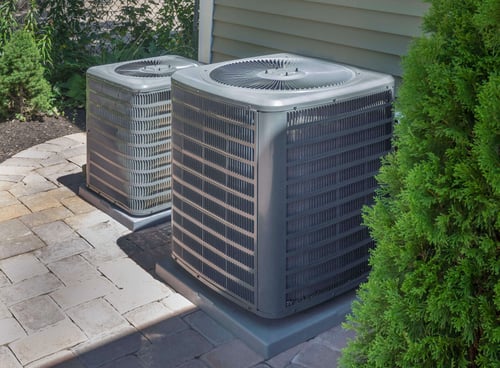Have you ever set your thermostat to 71 degrees, only to find that some days it feels perfectly comfortable, while on others, it feels much warmer? This common experience can be perplexing and frustrating. Understanding the factors behind this phenomenon can help you better manage your home's comfort and efficiency.
Let's unravel the mystery of temperature perception and explore how your HVAC system, specifically variable speed and multi-stage fans, plays a crucial role.
The Role of Humidity in Temperature Perception
One of the primary reasons 71 degrees can feel different on various days is humidity. High humidity levels make the air feel warmer than it actually is. This is because humid air hinders the evaporation of sweat from your skin, making it harder for your body to cool down. Conversely, lower humidity levels allow for better evaporation, making the air feel cooler and more comfortable.
Variable Speed and Multi-Stage Fans: Key to Consistent Comfort
Variable speed and multi-stage fans in your HVAC system's inside and outside units are essential for maintaining consistent comfort. Here's why:
1. Precise Temperature Control:
- Variable-speed fans adjust their speed based on the cooling demand. This means they can run at lower speeds for extended periods, ensuring a more consistent and precise temperature. Instead of experiencing temperature spikes and drops, your home maintains a steady 71 degrees.
2. Enhanced Humidity Control:
- Multi-stage fans operate at different levels, allowing the system to run longer at lower speeds. This extended operation time is crucial for humidity control. By running longer, the system has more time to remove excess moisture from the air, making your home feel cooler and more comfortable.
3. Energy Efficiency:
- Variable speed and multi-stage systems are more energy-efficient than single-stage systems. They use less electricity by avoiding the constant start-stop cycles of traditional systems. This efficiency saves you money on energy bills and contributes to a more sustainable environment.

The Downside of Oversized Units
Oversized HVAC units seem like a good idea for quickly cooling your home. Still, they come with significant drawbacks, particularly concerning humidity control.
1. Short Cycling:
- An oversized unit cools your home too quickly, causing it to shut off before completing an entire cooling cycle. This process, known as short cycling, prevents the system from running long enough to remove humidity effectively. As a result, your home may reach the desired temperature but still feel clammy and uncomfortable.
2. Increased Wear and Tear:
- Frequent short cycling strains the HVAC components, increasing wear and tear. This can result in more frequent repairs and a shorter lifespan for your system.
3. Higher Energy Consumption:
- Short cycling consumes more energy due to the constant start-stop nature of oversized units. This inefficiency can lead to higher energy bills and unnecessary environmental impact.
Achieving Optimal Comfort
To ensure that your home feels comfortable at 71 degrees regardless of the day, consider the following tips:
- Invest in a Variable Speed or Multi-Stage System: Upgrade your HVAC system to one with variable speed or multi-stage fans. This investment will pay off in comfort, efficiency, and humidity control.
- Proper Sizing: Ensure your HVAC system is correctly sized for your home. A professional HVAC technician can calculate load to determine the appropriate size for optimal performance.
- Regular Maintenance: Keep your system well-maintained with regular inspections and servicing. Clean filters, calibrated thermostats, and properly functioning components are essential for consistent comfort.
- Humidity Control: Use a dehumidifier if necessary, especially during the humid months. This can help maintain the ideal humidity levels in your home, enhancing your overall comfort.
Understanding why 71 degrees can feel different on various days involves recognizing the role of humidity and the importance of your HVAC system's functionality. Variable speed, multi-stage fans, and appropriately sized units are critical for achieving consistent comfort and efficient humidity control. By addressing these factors, you can ensure your home remains a comfortable haven, regardless of the weather outside.


